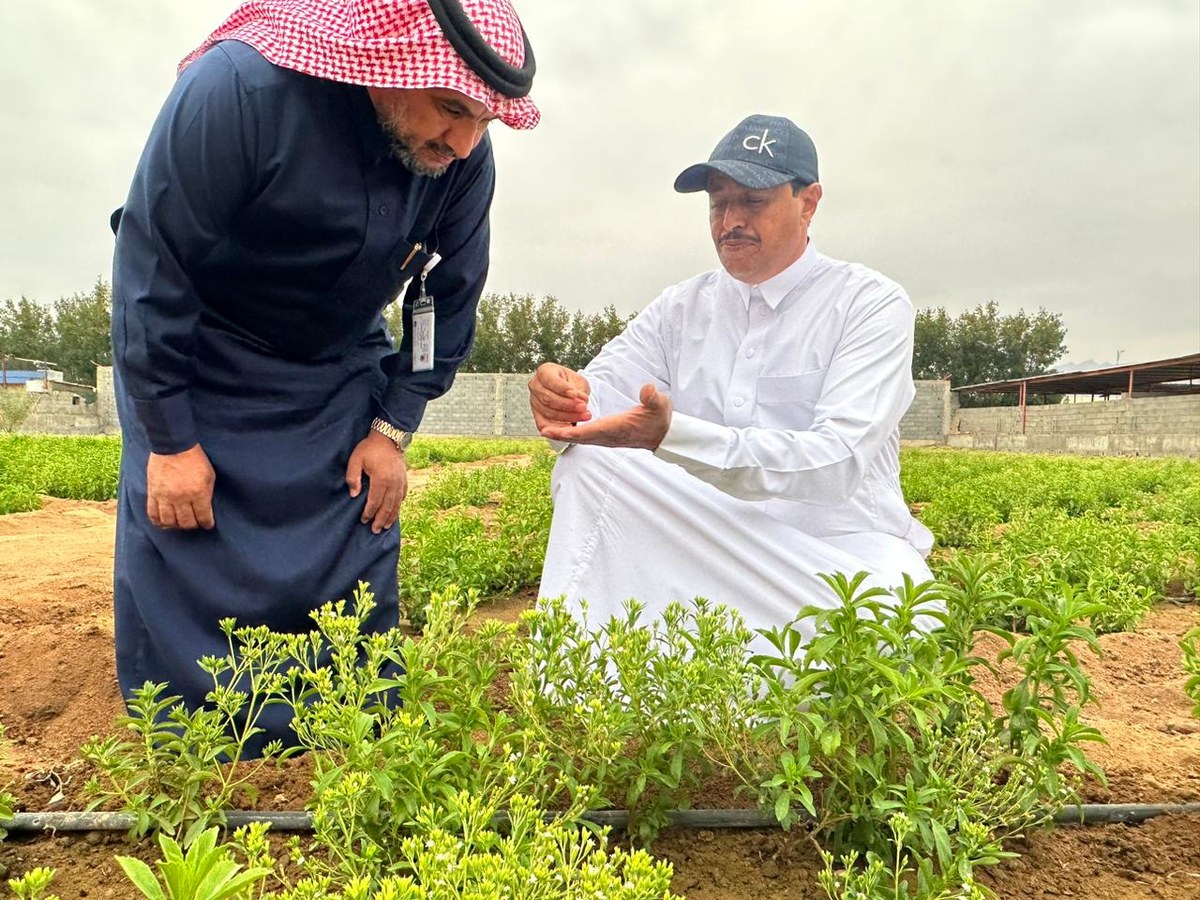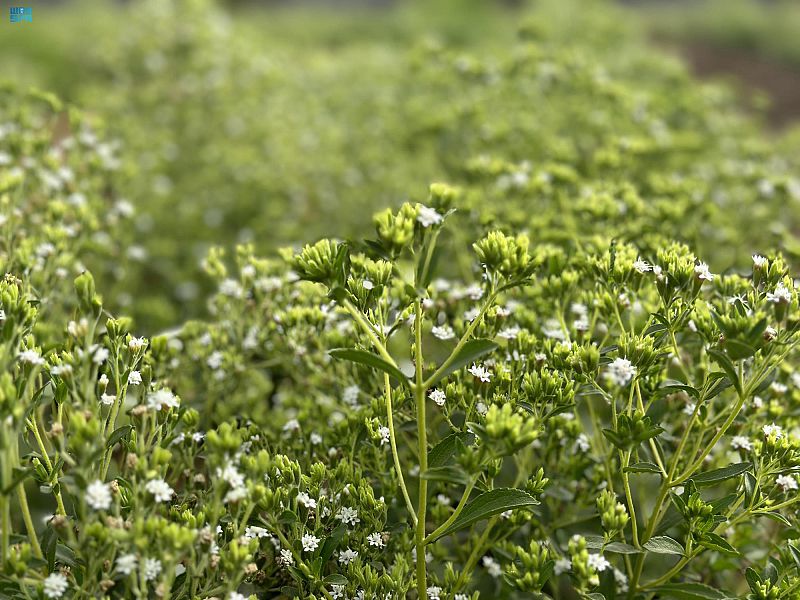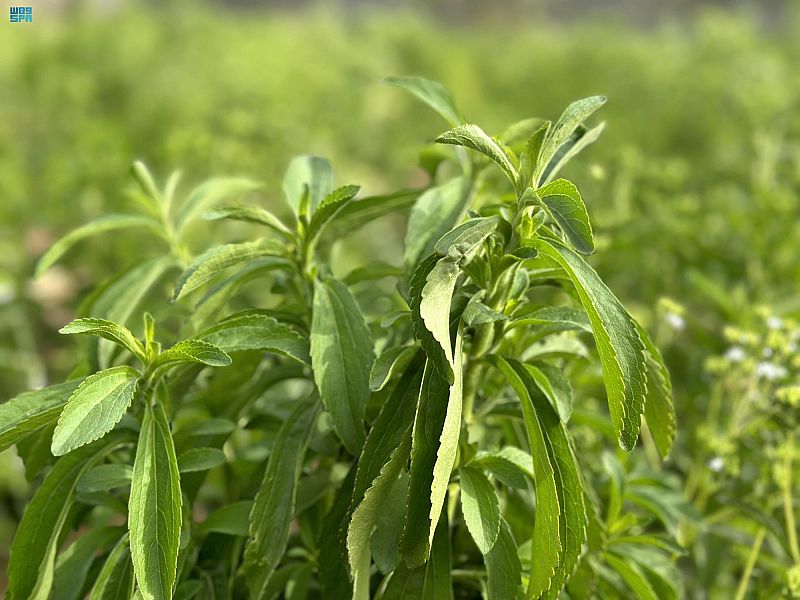JEDDAH: Many regions in the Kingdom have rich, fertile soil suitable for cultivating a variety of crops, including stevia which has been considered a natural and healthy alternative to sugar according to the European Food Safety Authority.
Hamad Mansour Al-Abbas, a Saudi farmer from Najran city in the southwestern region, with over 35 years of experience, has set aside 2,000 square meters of his 100,000-square-meter farm to grow stevia because of its health benefits.
Al-Abbas told Arab News: “It is known that the stevia plant is a herb that stays in the soil for up to seven years and is characterized by its very high sweetness. It is an alternative to sugar for those who follow a regular or keto diet or suffer from diabetes. As an admirer of natural alternatives and organic agriculture, I chose this plant because the soil fertility in Najran is high and can grow any crop.”

Hamad Mansour Al-Abbas a proffessional farmer with over 35 years of experience in the field of agriculture. (SPA)
Stevia leaves contain natural compounds and are as sweet as traditional sugar. The plant also has considerable nutritional and therapeutic properties, is safer than artificial sweeteners, with fewer calories, and several vitamins and minerals.
Al-Abbas was able to grow 15,000 stevia plants, aiming to introduce new herbal plants and trees into the local environment for marketing and distribution inside and outside the region.
Stevia is planted in rows, spaced out at five centimeters, and can be harvested and processed every three months, which helps to provide a large amount in one year.
“The plant grows within 30 days, after that it goes through three phases including harvesting, drying away from direct sunlight, then grinding through a machine. Once it is turned into a loose green powder, it is then packed into six packs of two grams each.”
The natural sweetener is then wrapped and distributed to markets in Najran. “My farm produces 5,000 packs of pure stevia loose powder per month, and I am currently studying the idea of establishing a factory so I can distribute it throughout the Kingdom as a healthy and natural product.”

A Saudi farmer dedicated 2000 square meters of his huge farm to grow stevia in Najran. (SPA)
Natural green powder
The difference between the natural stevia that Al-Abbas offers and others in many stores, is that his produce is a real natural sweetener in the form of green powder made only from dried leaves. Most store-bought stevia comes in the form of white powder, which has been through a water-extraction method, is semi-processed and up to 300 times sweeter than sugar.
The greenish powder helps to maintain healthy gums and teeth, and can be used as a natural sweetener with tea and warm drinks. Al-Abbas also offers it in a white powder similar to regular sugar, which is the extract of the stevia plant with a higher concentration. He also produces organic soap made of stevia extract that is beneficial for the skin.
Apart from stevia, Al-Abbas grows a variety of vegetables, herbs and strawberries, and his farm’s rich soil — in the moderate climate, with adequate water — is ideal for organic agriculture.

A Saudi farmer dedicated 2000 square meters of his huge farm to grow stevia in Najran, (SPA)
Al-Abbas said the Ministry of Environment, Water and Agriculture has held many workshops on his farm for trainees and specialists. He thanked the ministry for the support, which has included fertilizers, seeds and advice.
“I would like to mention that I have grown many crops during my life as a professional farmer, and I am very happy to see many new crops prospering in the region, such as pomegranates and coffee — especially that it is being cultivated with Saudi hands, where Saudis are supervising their farms and looking after it by themselves.”
He said the ministry continues to support all types of agriculture in Najran, including rare plants, assists with streamlining supply chains, and provides training and regulatory oversight. It also helps farmers move to safer, organic farming practices without the use of chemical fertilizers and pesticides, or genetically modified materials, that could be harmful to consumers and the environment.


























